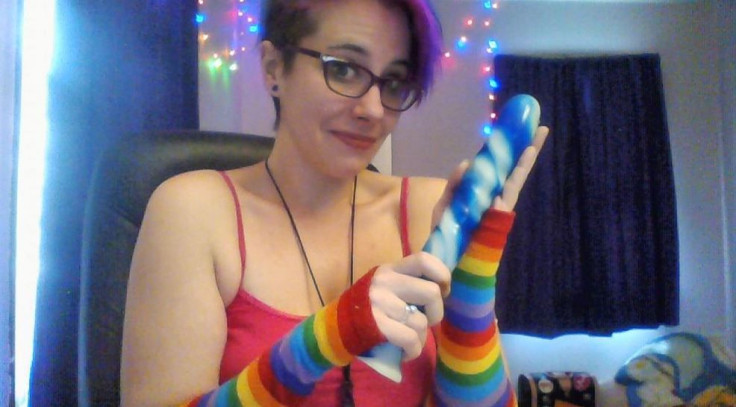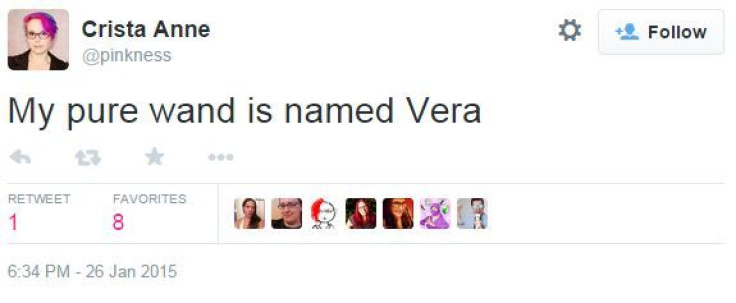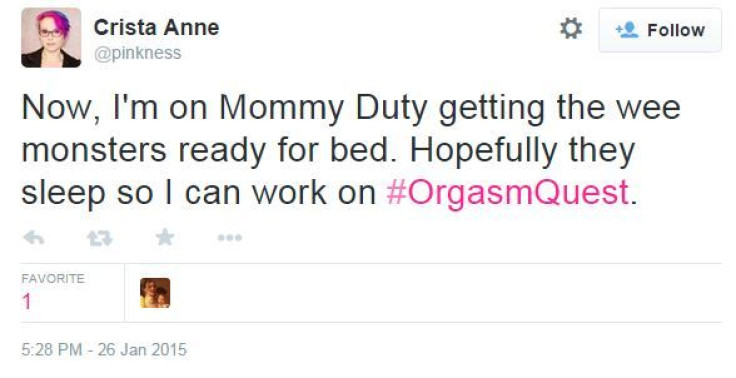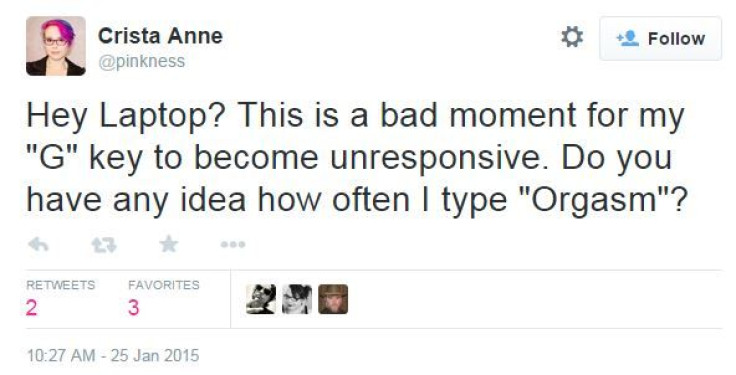Depression And Anorgasmia: Sex Blogger Crista Anne Provides Live Updates On Her Quest To Get Her Orgasm Back

There’s that one Sex and the City episode where Samantha claims she’s lost her orgasm after undergoing rounds of chemotherapy. The phrasing conjures an image of the lost and found — silly, but not entirely inaccurate. Side effects of certain therapies and medications are known to impede libido and orgasm. One such example is antidepressants.
Sex blogger Crista Anne is hoping to make this bit of information clear with her quest to achieve a masturbatory orgasm each day after her own prescription left her unable to climax “after a lifetime being The Most Orgasmic Person;” she literally calls it #OrgasmQuest. With real-time updates on her website and Twitter, Anne is hoping to maintain a candid conversation about her personal struggle, as well as the stigma surrounding depression and medication.
“Masturbatory orgasms have been tools I’ve used to combat depressive episodes. A quick reminder that I did have the ability to feel something good when everything else was so horrific,” Anne told BuzzFeed News. “I have chronic migraines, I could stave one off with a quick cup of tea and a quick orgasm. I could calm myself down before a panic attack really hit me with a quick masturbatory orgasm. Those are all life hacks to me.”
Since first speaking about her quest, Anne has found sponsorship from sex toy companies Good Vibrations, SheVibe, and Tantus.



Anne not being able to orgasm without proper stimulation is a condition known as anorgasmia. The Mayo Clinic reported the condition can be categorized into four types: primary, secondary, situational, and general. Based on these definitions, Anne is experiencing situational anorgasmia as it refers to men and women who can only orgasm during certain circumstances, such as masturbation or during oral sex.
While the majority of responses to Anne’s efforts have been positive, she’s receiving more negative responses as her online presence grows. BuzzFeed cited a piece she wrote for xoJane, in which Anne explained how some of the negative feedback targets her children and pings her "protect-my-kids-at-all-costs impulse."
The two common types of antidepressant medications associated with decreased sexual health are selective serotonin reuptake inhibitors (SSRI) and tricyclics. A study published in the Journal of Affective Disorders found these medications don’t just decrease sexual desires, but they lead to fewer feelings of personal connection, too: Patients taking SSRIs were more likely to report a loss of closeness to their partner.
For some, depression is caused by testosterone deficiency. This hormone, also known as an androgen, impacts a person’s muscle strength, sex drive, bone density, and body fat distribution, Healthline reported. And generally speaking, Everyday Health reported 60 percent of people with severe depression also suffer from decreased sexual pleasure and desire.
There's a lot of science out there, but there are fewer personal stories like Anne's, something she hopes will change.
"I will eventually get my orgasm back. Then Quest may take new directions," she said. "Perhaps other people with anorgasmia will share their stories with Quest. The hashtag is for anyone who wants to share. I don’t 'own' it. Perhaps it will turn into a promotion of self love and orgasm. We’ll find out."



























